Every day, we consciously use activities, lay out and play materials to let children enjoy and experience together. Child participation and social activities are part of this.
Building block in picture
Social skills
Forming friendships
Respect for others
Respecting differences
Democratic citizenship
Dealing with each other
Participating in society
Cultural awareness
Sharing and waiting their turn
With this building block children develop or learn:
One for all, all for one
During our annual 'Friends Week' we pay extra attention to the importance of friendship with fun activities. We also sometimes join national initiatives. For example, to prevent loneliness or to contribute to a cleaner and more just world.
Playing games has a positive influence on development. Children learn to deal with winning, losing and setbacks in a safe way. While playing, they learn to follow rules, be patient, and wait their turn. This sometimes demands a lot from their ability to concentrate and self-regulate. But it all contributes to their social skills. In team games, children learn to consult and work together. This strategic thinking is good for their cognitive development. They learn to concentrate, think ahead, plan and think about cause and effect.
Practicing for the real world
At our childcare, children participate in putting together the activity program. They may come with ideas about the lay out and the game material, which we take seriously. Together we work on a pleasant group dynamic.
Child participation
Together & Play is about friendship. You will be happier with friends around you. Childcare is the place where those first friendships are formed. From an early age, children learn to function in a group. This starts at the day care and continues at the out-of-school care. At childcare children practice to participate in a democratic society. They learn to listen, give an opinion, deal with resistance and different ideas, develop problem-solving skills, work together and make choices. With our professional guidance, children discover what they are capable of and who they are. And about other people, diversity and society. About the world, in other words. Close to home and further away.
Friendship
Playing together is indispensable when you grow up. You feel better when you have friends you can fall back on. Belonging helps against stress and ensures that you are full of confidence, resilience and happiness in life. Our locations are the practice area for social skills. It is society in miniature.
Together
& Play

One for all, all for one
During our annual 'Friends Week' we pay extra attention to the importance of friendship with fun activities. We also sometimes join national initiatives. For example, to prevent loneliness or to contribute to a cleaner and more just world.
Social skills
Forming friendships
Respect for others
Respecting differences
Democratic citizenship
Dealing with each other
Participating in society
Cultural awareness
Sharing and waiting their turn
With this building block children develop or learn:
At our childcare, children participate in putting together the activity program. They may come with ideas about the lay out and the game material, which we take seriously. Together we work on a pleasant group dynamic.
Child participation

Playing together is indispensable when you grow up. You feel better when you have friends you can fall back on. Belonging helps against stress and ensures that you are full of confidence, resilience and happiness in life. Our locations are the practice area for social skills. It is society in miniature.
Together
& Play
Playing games has a positive influence on development. Children learn to deal with winning, losing and setbacks in a safe way. While playing, they learn to follow rules, be patient, and wait their turn. This sometimes demands a lot from their ability to concentrate and self-regulate. But it all contributes to their social skills. In team games, children learn to consult and work together. This strategic thinking is good for their cognitive development. They learn to concentrate, think ahead, plan and think about cause and effect.
Practicing for the real world
Together & Play is about friendship. You will be happier with friends around you. Childcare is the place where those first friendships are formed. From an early age, children learn to function in a group. This starts at the day care and continues at the out-of-school care. At childcare children practice to participate in a democratic society. They learn to listen, give an opinion, deal with resistance and different ideas, develop problem-solving skills, work together and make choices. With our professional guidance, children discover what they are capable of and who they are. And about other people, diversity and society. About the world, in other words. Close to home and further away.
Friendship
Every day, we consciously use activities, lay out and play materials to let children enjoy and experience together. Child participation and social activities are part of this.
Building block in picture